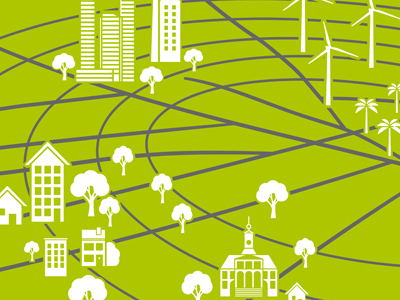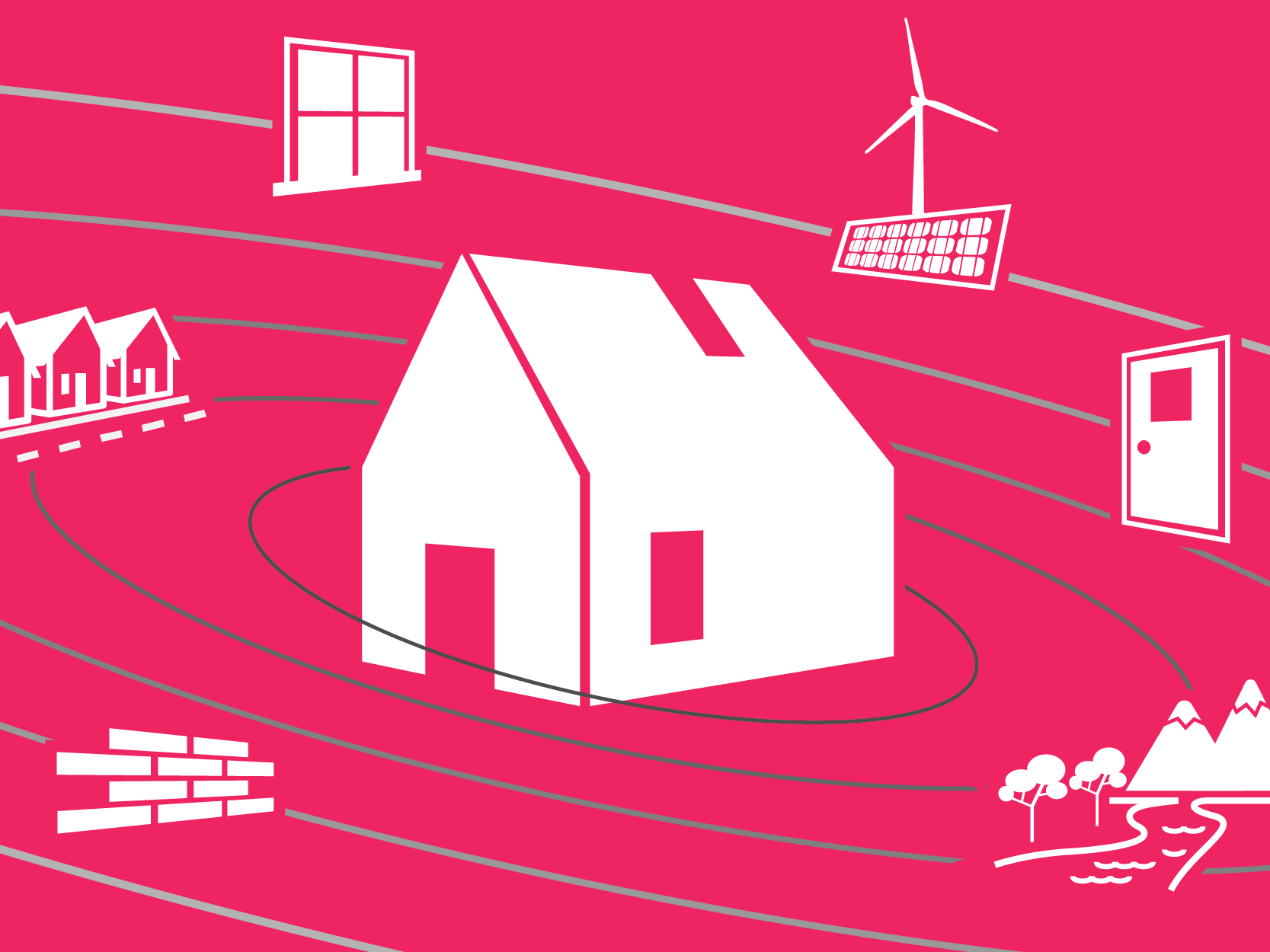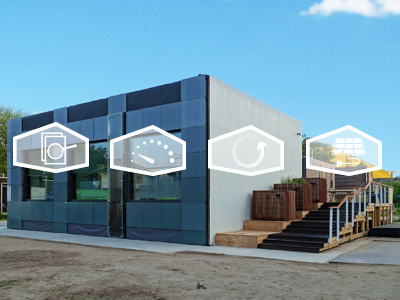Overview
Course video
Be a frontrunner in circular building product development. Learn best practices and how to create value for your company in the transition to a Circular Economy.
Building products are the basic components of the built environment. They play a crucial role in the transition from the Linear to a Circular Economy. In this course you will discover the opportunities that circular building products can offer. You will investigate them from various perspectives: design, technology, business case and methods of implementation (including, among others, digital product tracking).
This course is suitable for architects, product designers, managers, supply chain actors and other professionals working towards the development of future products used to create sustainable, circular buildings. The course will provide you with a theoretical framework, the terminology used in the sector and real examples of circular solutions in terms of architectural product design. It will use real world case studies and provide you with the tools to create new products and business models, and help you to fully understand the complexity of the task and are able to judge existing circular approaches. Ultimately, it will teach you how circular products are the result of systems thinking and interdisciplinary approaches and will thus help you design and develop new circular building products and processes for your organization.
The objective of the course is for learners to implement the different steps of the Circular Building Products (CBP) methodology, as they work through the transformation of a product of their choice. Each week addresses a different aspect of CBP, with assignments requiring the direct application of the circular principles. Throughout the entire course, you will be supported by the lecturers – you will receive feedback on the weekly assignments and have opportunities to communicate with experts in the field.
To actively engage with all the learners, the instructors will offer two live, free, online webinars (time and dates will be announced in due time; attendance is preferable, but the discussions will be recorded for those unable to attend).
The unique, hands-on character of the course will be amplified with elements of a group work conducted on Miro board. Having a user account and working on Miro will be an important factor for successful course completion.
You will learn how to:
- Critically evaluate the key parameters needed to make building products circular and assess how they can influence the shift from Linear to Circular Economy in the built environment.
- Develop strategies for circular building product development.
- Analyze different types of circular business models and establish the connection between the different actors.
- Use systems thinking in implementing the transition to circular building products, including technical and operational issues.
The course is a continuation of the first course Circular Economy for a Sustainable Built Environment, which is aimed at supporting the transition toward a Circular Economy in the built environment. TU Delft's Circular Built Environment hub has designed and developed this course working with leading industry and research partners, to achieve a higher level of applicability and relevance. Through our long-term collaboration with professionals in the field of building product development, we are able not only to identify the urgent need for circular solutions in the industry, but also to explore best-practice examples.
Details
Course Syllabus
Week 1: Introduction
You will learn what a Circular Building Product is and will be able to reflect on the incentives for developing such products following the Circular Economy principles.
Topics covered in the week are:
- Building products from materials to assemblies
- The shift from Linear to Circular Economy and the implications for product development
- The vocabulary of circularity and parameters related to Circular Building Products
- The materials – biological vs. technical materials, critical materials
Week 2: Design and Technology
You will learn how to identify the impact of the choice of materials for building products. At the end of the week, you will be able to distinguish between the different circularity strategies (the R strategies) and determine which are most relevant for circular building product development. The week will cover the following topics:
- Ways to calculate the impact of materials in products
- Connection with the Circular Economy strategies (the Rs)
- Circularity principles in building product development – connections, modularity, material selection, design and decision-making process
- Life-cycle analysis (LCA) for building products
Week 3: Business and Stakeholders
During this week you will learn about the soft side: development of building products is not simply a hardware issue. The success of a circular product depends not only on the design but on business aspects as well. The main topics discussed are:
- The lifecycle of a building product and its management through the whole lifespan
- Stakeholder roles, challenges and values during the lifecycle of a product.
- Enable business model circularity by integrating the Rs. How can products be incorporated into a circular context to increase the lifespan and maintain value?
- Residual value of a product – Developing business models which can capture the residual value of the products and their materials
Week 4: Implementation
During week 4 you will learn how digital technologies enhance circularity and what this means for a company's operations. The focus is on the importance of social awareness and the legal framework. The main topics discussed during the week are:
- Role of Circular Economy development for company operations
- Using digital technologies to enhance the circularity of building products
- The influence of legal and regulatory framework on the circularity transition
- Mindset and awareness for the application of Circular Building Products
Week 5: Circular Building Product Development
During the last week of the course you will learn how to evaluate whether a building product is circular or not. You will be able to reflect on the bigger picture and the limitations of the Circular Economy and its relation to sustainability. The topics discussed during the week are:
- Summary the Circular Building Product development process
- Critical evaluation of the circularity of building products
- Limitations of the Circular Economy concept and its connection to sustainability
Other instructors:
Anne van Stijn and Bas Jansen, doctoral researchers at Delft University of Technology
Qualifications
Certificates and CEUs
The TU Delft Extension School offers Continuing Education Units for this course. Participants who successfully complete the course requirements will earn a Certificate of Completion and are eligible to receive 2.5 Continuing Education Units (2.5 CEUs).
Chartered Engineering Competences
All our online courses and programs have been matched to the competencies determined by KIVI’s Competence Structure, a common frame of reference for everyone, across all disciplines, levels and roles.
These competences apply to this course:
- A1: Extend your theoretical knowledge of new and advancing technologies.
- B2: Conduct appropriate research, and undertake design and development of new and creative engineering solutions.
- E3: Undertake engineering activities in a way that contributes to sustainable development and a circular economy.
Admission
This course is primarily geared towards working professionals.
Familiarity with the Circular Economy or Circular Building Environment, as introduced in our MOOCs, is recommended.
Contact
If you have any questions about this course or the TU Delft online learning environment, please visit our Help & Support page.



